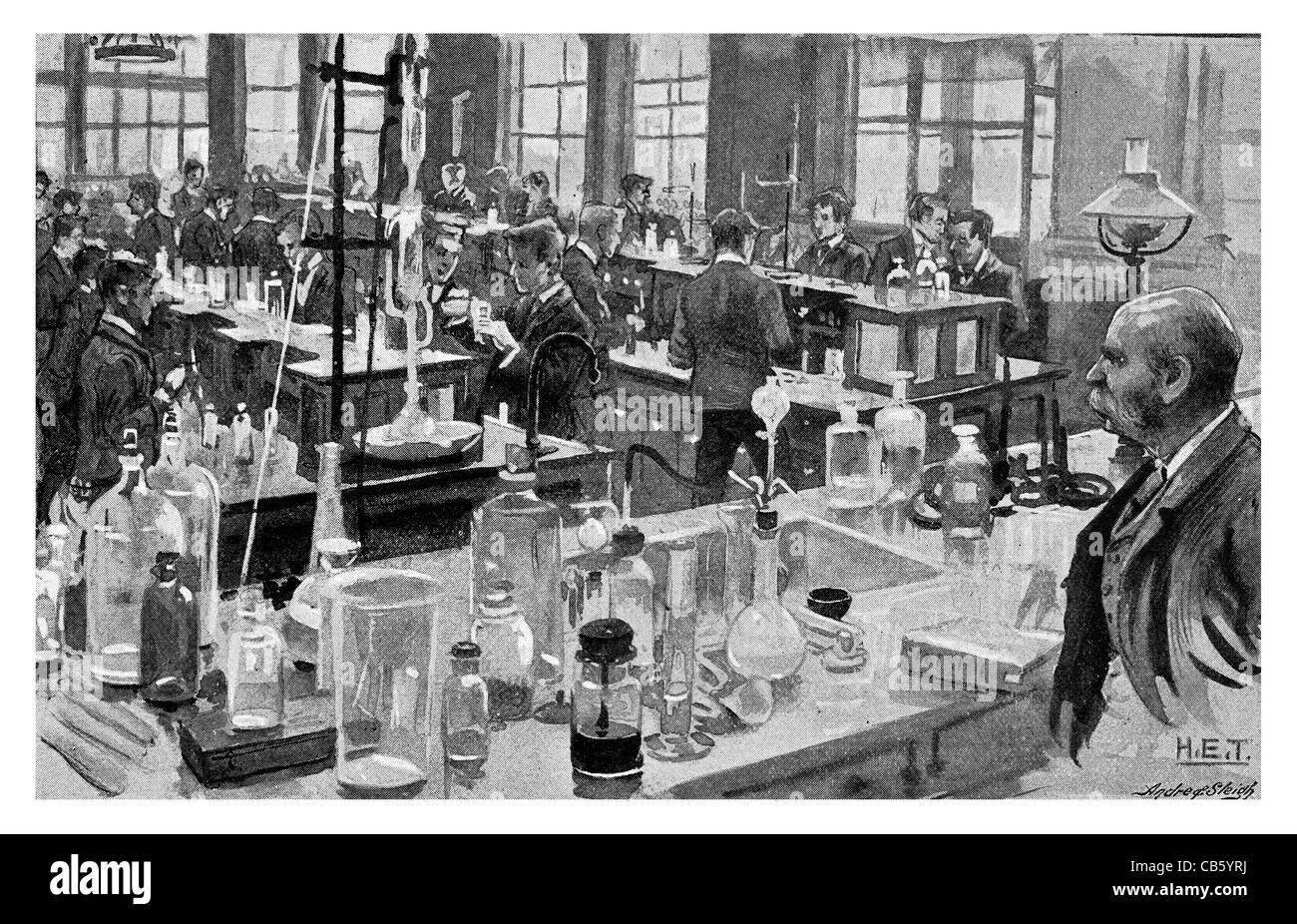Chemical Laboratory of the Grammer School education teaching science scientific equipment lab teacher learning study classroom

Image details
Contributor:
SOTK2011 / Alamy Stock PhotoImage ID:
CB5YRJFile size:
31.7 MB (3.8 MB Compressed download)Releases:
Model - no | Property - noDo I need a release?Dimensions:
4148 x 2668 px | 35.1 x 22.6 cm | 13.8 x 8.9 inches | 300dpiDate taken:
2011More information:
Much of Manchester's history is concerned with textile manufacture during the Industrial Revolution. The great majority of cotton spinning took place in the towns of south Lancashire and north Cheshire, and Manchester was for a time the most productive centre of cotton processing, and later the world's largest marketplace for cotton goods. Manchester was dubbed "Cottonopolis" and "Warehouse City" during the Victorian era. In Australia, New Zealand and South Africa, the term "manchester" is still used for household linen: sheets, pillow cases, towels, etc. Manchester began expanding "at an astonishing rate" around the turn of the 19th century as part of a process of unplanned urbanisation brought on by the Industrial Revolution. It developed a wide range of industries, so that by 1835 "Manchester was without challenge the first and greatest industrial city in the world." Engineering firms initially made machines for the cotton trade, but diversified into general manufacture. Similarly, the chemical industry started by producing bleaches and dyes, but expanded into other areas. Commerce was supported by financial service industries such as banking and insurance. Trade, and feeding the growing population, required a large transport and distribution infrastructure: the canal system was extended, and Manchester became one end of the world's first intercity passenger railway—the Liverpool and Manchester Railway. Competition between the various forms of transport kept costs down. In 1878 the GPO (the forerunner of British Telecom) provided its first telephones to a firm in Manchester. The Manchester Ship Canal was built in 1894, in some sections by canalisation of the Rivers Irwell and Mersey, running 58 kilometres (36 mi) from Salford to Eastham Locks on the tidal Mersey. This enabled ocean going ships to sail right into the Port of Manchester. On the canal's banks, just outside the borough, the world's first industrial estate was created at Trafford Park.